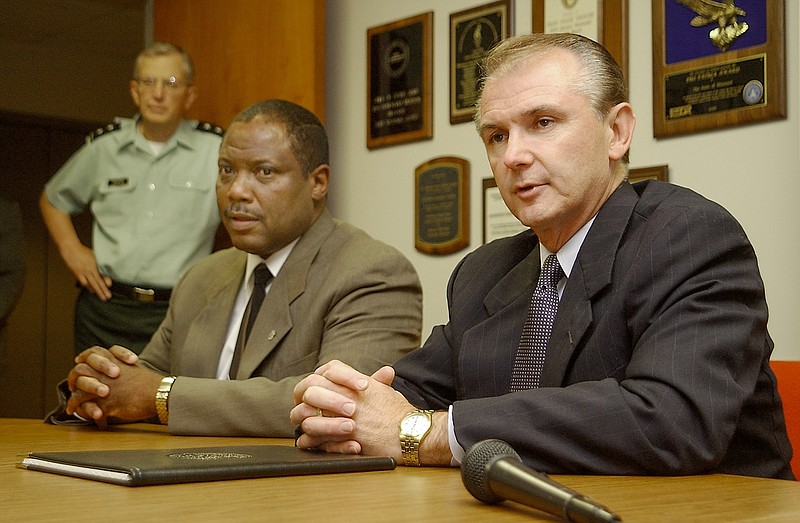The United States, and communities within it, stood unaware of how vulnerable they were before 9/11, said then-Missouri Gov. Bob Holden.
In the attacks' aftermath, Holden was shocked to learn how unprotected communities were.
But, they had been warned.
Domestic terror has been a fact of life since the beginning of the nation.
We've seen bombings, massacres, lynchings and assassinations.
Not far from Missouri, domestic terror killed 168 people, including 19 children, in Oklahoma City only 6 years earlier.
However, 9/11 was different.
For the first time (on the mainland), many say, terror came from outside the country.
Truth is, there had been outside-organized attacks on the nation before, such as the Feb. 26, 1993, bombing attempt on the World Trade Center.
But none had been as destructive as 9/11.
Holden had been elected governor in Missouri just eight months before terrorists attacked the United States on Sept. 11, 2001.
And the state was already in the midst of turmoil and grief, having lost Gov. Mel Carnahan in a plane crash 11 months earlier. Lt. Gov. Roger Wilson completed Carnahan's term (serving about three months).
"What was so shocking on Sept. 11, was how we had never given serious thought about something this major happening in our country," Holden said. "The idea that somebody had the capability to train people willing to die for their cause. How they could train people to fly these planes and be willing to give up their life for that action in our own country was pretty remarkable."
Holden received a phone call early in the morning concerning what was happening in New York and other areas in the east.
"By 10 that day, I was on the floor (of the House), making general comments about what had happened," he said.
He told Missouri lawmakers that state government was on heightened alert, and the State Emergency Management Agency was keeping his office apprised of developments and actions needed. Missouri stepped up security at state office buildings (including restricting access to places like the Capitol).
Holden and other state leaders spoke to residents Sept. 14 outside the Capitol, encouraging them to pull together and support each other.
However, insiders saw Missouri vulnerabilities, he said.
"The more I looked into the situation, the more I realized how serious a situation we had in the state of Missouri," Holden said. "Those openings were all across the country."
Most people in the country, except probably a few military leaders, he explained, never imagined somebody could invade our country through such measures - and get the results they got.
Holden hired Tim Daniel, who had managed operations in Fort Leonard Wood and had been a long-range planner for the Pentagon, as his homeland security adviser.
Missouri became the first state to create a Homeland Security Department, Holden said.
"We had to evaluate. People didn't think about having a nuclear site in Columbia, Missouri. They didn't think about nuclear sites in other locations," he said. "Nobody bothers to think about our highways, waterways, and all those types of exposures that might be there. You stop to think about it."
From his standpoint, Holden said, all the responses were a-political.
"Our job was to - as quickly as we could - analyze what we needed in Missouri. What do we do to benefit Missouri?" he said.
Staff took a bipartisan approach to responses to the attacks, he said. His approach was to find the best solutions for the state - and not be concerned about who the solutions helped or hurt.
"It was very much a focus on, 'What do we need to do to protect Missouri going forward?' Washington was very willing to help anybody who was willing to work together," Holden said. "I was very proud of the people we put in charge of things, the public, the Legislature. We stepped up to the task and did the things we needed to do.
"I'm very proud of the work we did on behalf of the state of Missouri.
"I don't like to relive these times, but we have to remind people that it can happen again if we don't take steps."

